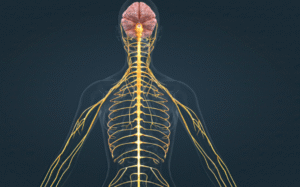Recognizing Early Symptoms of Pleural Mesothelioma

Pleural mesothelioma, a type of cancer affecting the lining of the lungs, often presents symptoms that can be mistaken for more common illnesses. Recognizing these early signs is crucial for timely diagnosis and treatment.
Shortness of Breath
One of the first symptoms many patients notice is shortness of breath. This can occur even during light activities and may gradually worsen over time.
Chest Pain and Discomfort
Chest pain is another common early symptom. This pain can be sharp or dull and may be accompanied by a feeling of tightness or discomfort in the chest area.
Persistent Cough
A persistent cough that doesn’t go away with usual treatments can be a warning sign. This cough may be dry or produce mucus and can be accompanied by wheezing.
Unexplained Weight Loss
Many patients experience unexplained weight loss. This can happen even without changes in diet or exercise and is often accompanied by a general feeling of fatigue.
If you or a loved one are experiencing any of these symptoms, especially with a history of asbestos exposure, it’s important to seek medical advice promptly.
Identifying Peritoneal Mesothelioma Symptoms
Peritoneal mesothelioma develops in the lining of the abdomen, known as the peritoneum. Recognizing the early signs can be crucial for timely diagnosis and treatment. Here are some key symptoms to watch for:
Abdominal Pain and Swelling
One of the most common symptoms is abdominal pain. This pain can be persistent and may worsen over time. Additionally, swelling in the abdomen, often due to fluid buildup, is another significant indicator.
Bloating and Fluid Buildup
Patients may experience bloating and a noticeable increase in abdominal size. This is often caused by fluid accumulation, known as ascites, in the peritoneal cavity.
Nausea and Vomiting
Feeling nauseous and experiencing vomiting are also common symptoms. These can be accompanied by other digestive issues, making it difficult to maintain a normal diet.
Loss of Appetite
A loss of appetite is frequently reported by those with peritoneal mesothelioma. This can lead to unintentional weight loss and further weaken the body.
If you notice any of these symptoms, especially if you have a history of asbestos exposure, it is important to seek medical advice promptly.
Understanding Pericardial Mesothelioma Indicators
Pericardial mesothelioma is a rare form of cancer that affects the lining around the heart, known as the pericardium. Because it is so uncommon, doctors may not initially suspect it, often mistaking it for other heart conditions. Recognizing the early signs can be crucial for timely diagnosis and treatment.
Chest Pain and Tightness
One of the most common symptoms is chest pain. Patients often describe it as a persistent tightness or discomfort in the chest area. This pain can sometimes be mistaken for other heart-related issues, making it essential to seek medical advice if the pain persists.
Irregular Heartbeats
Another indicator is irregular heartbeats or arrhythmias. Patients may experience palpitations or a feeling that their heart is skipping beats. These symptoms should not be ignored, especially if they occur alongside other signs of pericardial mesothelioma.
Difficulty Breathing
Difficulty breathing is another common symptom. This can range from mild shortness of breath to severe respiratory distress. If you find it hard to breathe, especially when lying down, it is important to consult a healthcare provider immediately.
Night Sweats
Night sweats are less common but can still be a sign of pericardial mesothelioma. Waking up drenched in sweat can be alarming and should prompt a visit to the doctor, particularly if it happens frequently.
Early detection is key. A mesothelioma diagnosis often begins with a physical exam and imaging scans to rule out more common illnesses. If you have a history of asbestos exposure and experience any of these symptoms, it is crucial to seek medical advice promptly.
Common Signs of Late-Stage Mesothelioma
Late-stage mesothelioma, often referred to as stages 3 and 4, presents more severe symptoms as the disease progresses. Recognizing these signs is crucial for timely medical intervention.
Severe Chest or Abdominal Pain
Patients often experience extreme chest pain or significant abdominal discomfort. This pain can be persistent and debilitating, affecting daily activities.
Chronic Fatigue
Fatigue or weakness becomes more pronounced in the later stages. This chronic tiredness can make even simple tasks feel exhausting.
Difficulty Swallowing
Late-stage mesothelioma can lead to difficulty swallowing. This symptom, known as dysphagia, can cause discomfort and may lead to weight loss due to reduced food intake.
Coughing Up Blood
A particularly alarming symptom is coughing up blood. This indicates that the disease has significantly progressed and requires immediate medical attention.
When to Seek Medical Advice for Mesothelioma Symptoms
History of Asbestos Exposure
If you have a history of asbestos exposure, it’s crucial to be vigilant about any unusual symptoms. Asbestos is the primary cause of mesothelioma, and early detection can significantly improve treatment outcomes. Discuss any potential exposure with your doctor, even if you are not currently experiencing symptoms.
Persistent and Worsening Symptoms
Symptoms of mesothelioma can often be mistaken for more common illnesses. However, if you experience persistent and worsening symptoms such as shortness of breath, chest pain, or abdominal discomfort, it’s essential to seek medical advice. Early symptoms can be mild, but they should not be ignored.
Importance of Early Diagnosis
Early diagnosis of mesothelioma is critical for effective treatment. On average, it takes about nine months from the onset of symptoms to receive a diagnosis. The sooner you are diagnosed, the better your chances are for successful treatment. Early treatment can help manage symptoms and slow the progression of the disease.
Consulting a Mesothelioma Specialist
If you suspect you have mesothelioma, it’s important to consult a specialist. A mesothelioma specialist can provide a more accurate diagnosis and recommend the best treatment options. They can perform a physical exam, order imaging tests like chest X-rays and CT scans, and conduct a biopsy if necessary. Getting an accurate diagnosis from a specialist can help you access the best treatments to ease your symptoms and keep the cancer from spreading.
Managing Symptoms and Improving Quality of Life
Symptom Management Options
Managing mesothelioma symptoms involves a mix of treatments aimed at reducing discomfort and improving daily life. Palliative care focuses on easing symptoms rather than curing the disease. Some options for pain management include working with a physical therapist who can show you ways to move to help prevent pain and make life more comfortable. Common treatments include:
- Pain management: Medications and therapies to reduce pain.
- Respiratory therapy: Helps with breathing difficulties.
- Physical and occupational therapy: Aids in maintaining mobility and daily activities.
- Complementary therapies: Such as massage, gentle yoga, or meditation.
Palliative Care Approaches
Palliative care is essential for improving the quality of life for mesothelioma patients. It includes treatments like paracentesis to remove excess fluid from the abdomen and thoracentesis to drain fluid from the chest. These procedures can help patients breathe easier and feel more comfortable. Palliative care can be used at any stage of the disease.
Nutritional Support
Good nutrition is vital for mesothelioma patients. A balanced diet can help maintain strength and energy levels. Nutritional support may include working with a dietitian to create a meal plan that meets the patient’s needs. Eating small, frequent meals can also help manage symptoms like nausea and loss of appetite.
Emotional and Psychological Support
Dealing with mesothelioma can be emotionally challenging. Support groups and counseling can provide emotional and psychological support. Talking to others who are going through similar experiences can be comforting and provide valuable insights. Mental health support is a crucial part of a comprehensive symptom management plan.






